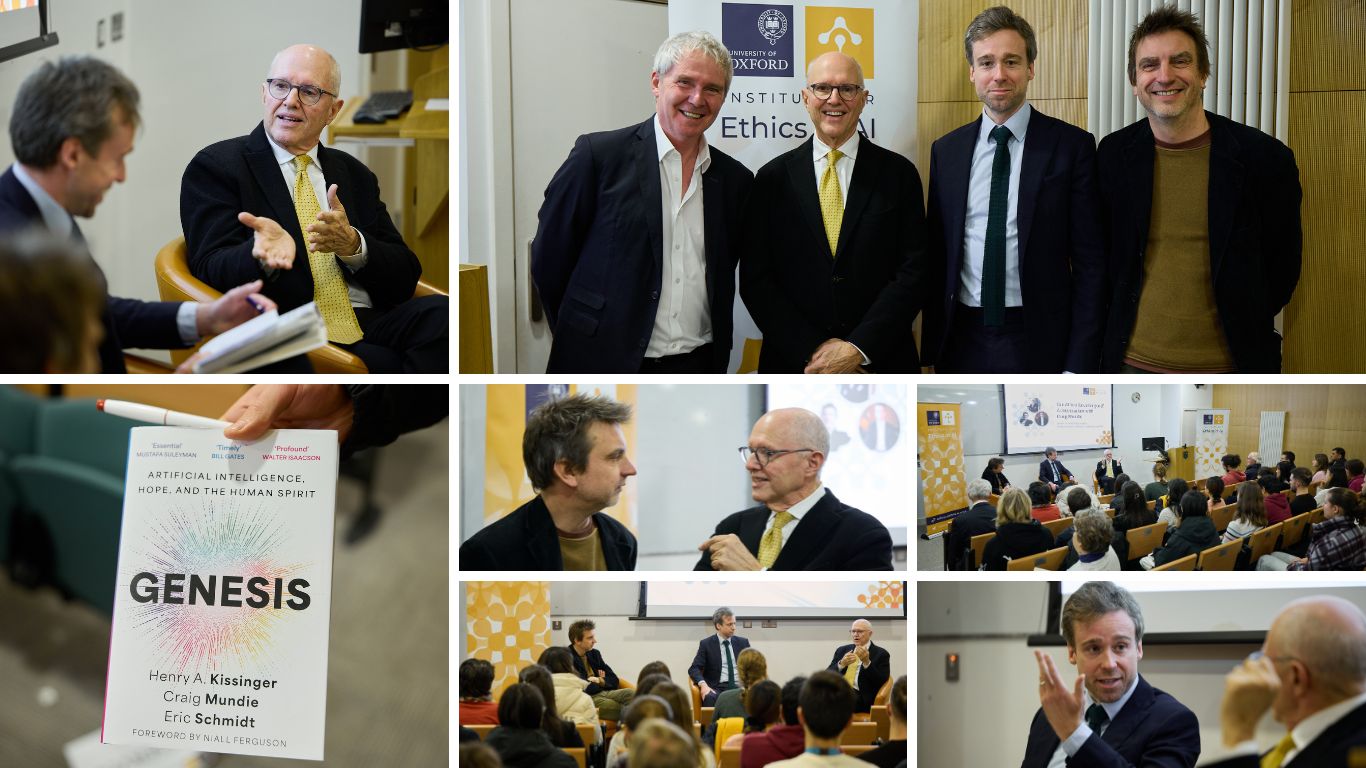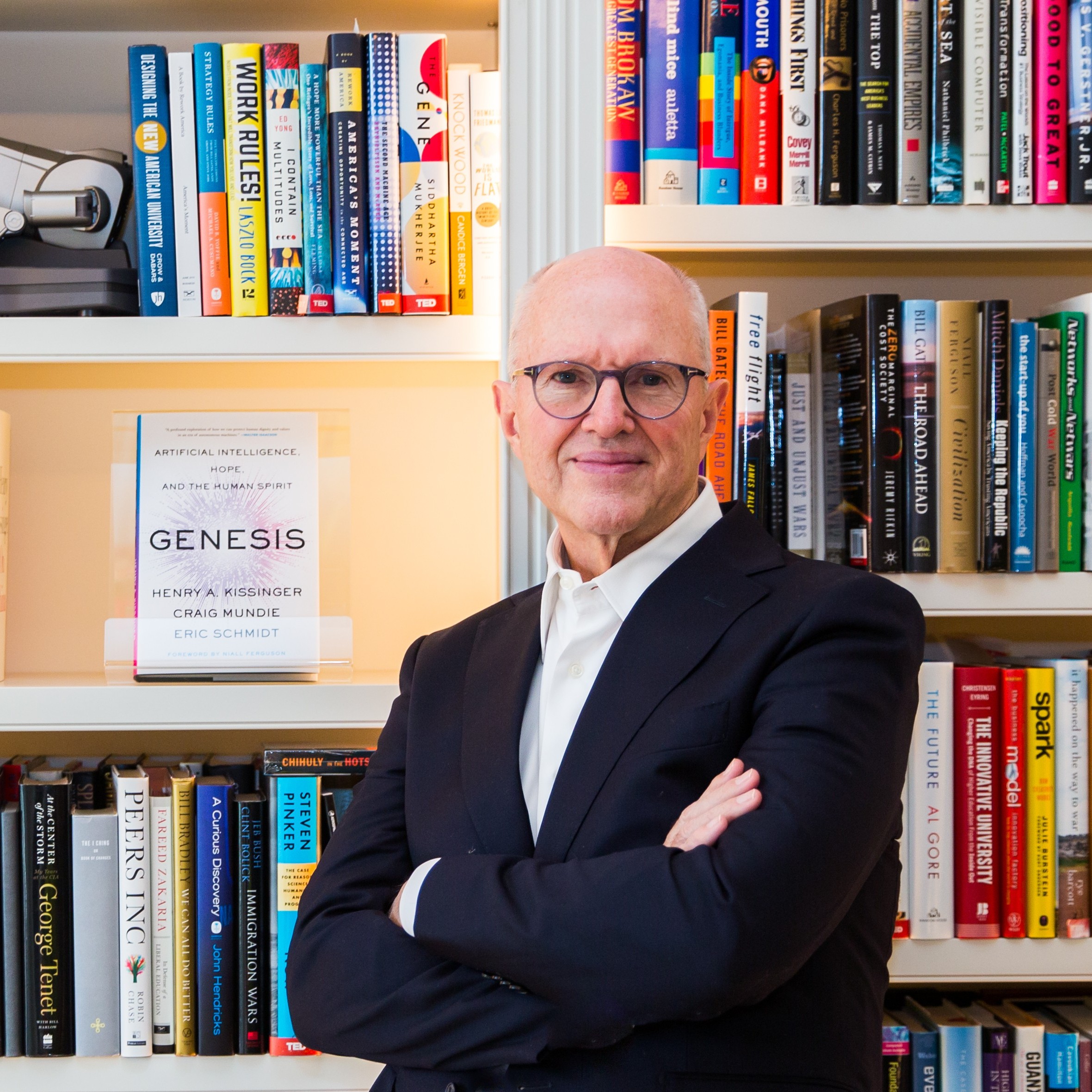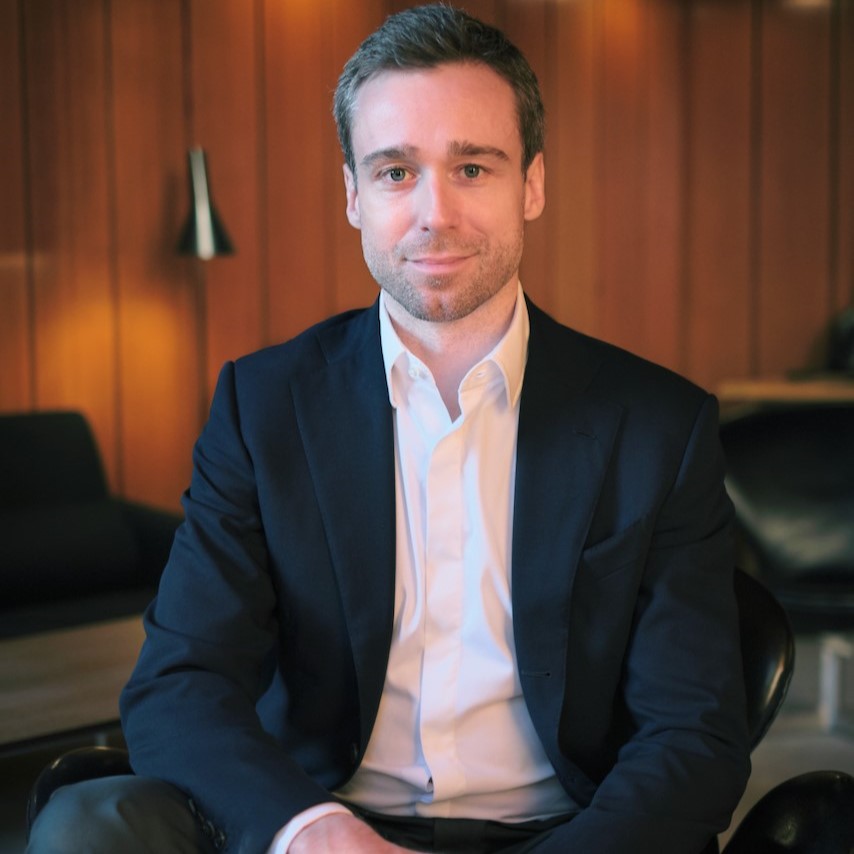
In his final book Genesis: Artificial Intelligence, Hope, and the Human Spirit, the late Henry Kissinger collaborated with technologists Craig Mundie and Eric Schmidt to explore how AI is reshaping humanity's relationship with knowledge, reality, and ourselves. As AI systems grow in capability and agency, they offer unprecedented opportunities to address global challenges from climate change to inequality, while also raising profound questions about human judgment, discovery, and evolution.
This was an opportunity to join an in-depth discussion with Craig Mundie, former Chief Research and Strategy Officer at Microsoft and distinguished technology advisor to three U.S. Presidents. In conversation with Professors Philipp Koralus and Christopher Summerfield, Mundie explored how we can harness AI's transformative potential while thoughtfully addressing its risks. Drawing on decades of experience at the intersection of technology and policy, he'll discuss how academia, industry, and government can collaborate to ensure AI development remains aligned with human values and societal benefit.
The session included a 30-minute presentation followed by a moderated discussion and audience Q&A.
A write-up of the event is available here.
The Institute for Ethics in AI will bring together world-leading philosophers and other experts in the humanities with the technical developers and users of AI in academia, business and government. The ethics and governance of AI is an exceptionally vibrant area of research at Oxford and the Institute is an opportunity to take a bold leap forward from this platform.
Every day brings more examples of the ethical challenges posed by AI; from face recognition to voter profiling, brain machine interfaces to weaponised drones, and the ongoing discourse about how AI will impact employment on a global scale. This is urgent and important work that we intend to promote internationally as well as embedding in our own research and teaching here at Oxford.
Photo gallery of the event (photographer Ian Wallman):


Craig Mundie is a distinguished technology executive with a career defined by significant contributions to the tech industry and public policy. He has spent decades shaping the future of technology and its intersection with society. Currently, he focuses on advising organisations and governments on emerging technologies, policy development, and societal impacts, with particular emphasis on fusion energy, controlling superintelligent systems, cybersecurity, quantum computation and molecular medicine.
During his 22-year tenure at Microsoft, Mundie held key leadership roles, including Chief Technical Officer, Chief Research and Strategy Officer, and Senior Advisor to the CEO. In these roles, he played a pivotal role in defining the company’s technology strategy, driving research initiatives, and influencing policy development. He continues to advise Microsoft on strategic initiatives.
In addition to his corporate achievements, Mundie has been a trusted advisor to the U.S. government. He served for 10 years on the National Security Telecommunications Advisory Committee, where he provided critical guidance to the Clinton, Bush, and Obama administrations on technology and national security issues. He also spent 8 years as a member of President Obama’s Council of Advisors on Science and Technology (PCAST), contributing to the development of national science and technology policies.
Mundie continues to play a key advisory role in areas such as cybersecurity, quantum computing, AI technology policy, and innovation strategies for U.S. governmental organisations and corporations. He is a leading advocate for responsible technology development, particularly in the fields of artificial intelligence, advanced computing systems, and global technology policy. Mundie is currently co-chair of a Track II dialogue with China on Artificial Intelligence.
Commentator

Professor Christopher Summerfield is a Professor of Cognitive Neuroscience at the University of Oxford and a Research Director at the UK AI Safety Institute. His work focuses on understanding the mechanisms of learning and decision-making in humans and machines, and studying the social, economic, and political implications of widespread deployment of AI in Society. He has written two books: Natural General Intelligence (OUP, 2022) and These Strange New Minds (Penguin, forthcoming 2025).
Hosted by

Professor Philipp Koralus has been with the Faculty at the University of Oxford for 11 years. He founded HAI Lab in 2024 and became the inaugural McCord Professor of Philosophy and AI.
He previously held fellowships at the University of Notre Dame, and Washington University in St. Louis. He was the first recipient of a joint PhD in Philosophy and Neuroscience from Princeton University. His research interests focus on bringing philosophy into tech, specifically around the concepts of reason and agency, and bringing AI into the service of human flourishing. He is a Fellow by Special Election at St. Catherine’s College.
